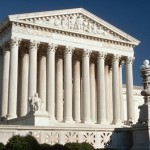The D.C. Circuit Court of Appeals has affirmed the ruling of the lower court and held that the IRS does not have the statutory authority to regulate tax return preparers.
In a unanimous and rather direct opinion, the Court of Appeals listed six reasons why the 130 year old statute, 31 U.S.C. § 330, relied upon by the IRS was insufficient to authorize regulation of non-accountant and non-attorney tax return preparers.
- Tax return preparers do not represent taxpayers, they assist them;
- Tax return preparers do not practice before the IRS;
- Tax return preparers are not representing taxpayers a contested proceeding;
- If valid, the authority of the underlying statute would make all other statutes regulating tax return preparers, e.g. the IRC, moot;
- The statute’s text and legislative history do not support the broad regulatory powers claimed by the IRS; and
- Finally, the IRS didn’t apply the century-old statute to regulate tax return preparers until 2011 and before that the agency’s statements about return preparer regulation were inconsistent with the current interpretation.
The court summarized its view: “the traditional tools of statutory interpretation – including the statute’s text, history, structure, and context – foreclose and render unreasonable the IRS’s interpretation of Section 330.” It also advised the IRS that if it wishes to regulate tax return preparers it should introduce and pass new legislation.
Despite the resounding defeat, the IRS may still petition the appellate court a for rehearing en banc, which would presumably include the three recently appointed members of the D.C. Circuit. The deadline for that motion is March 28.
If the IRS seeks a writ for certiorari with the U.S. Supreme Court, it must file a petition by May 12.
Read the entire opinion here:
Loving v. IRS, No. 13-5061 (D.C. Cir. Feb. 11, 2014)



